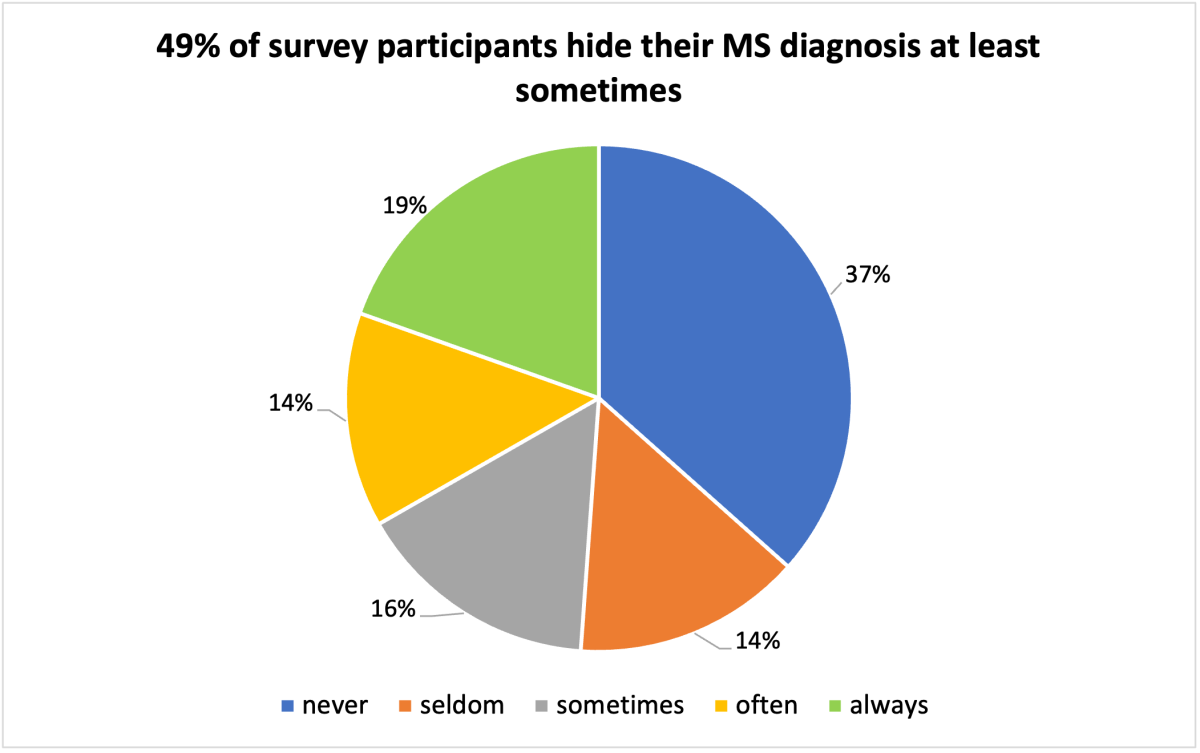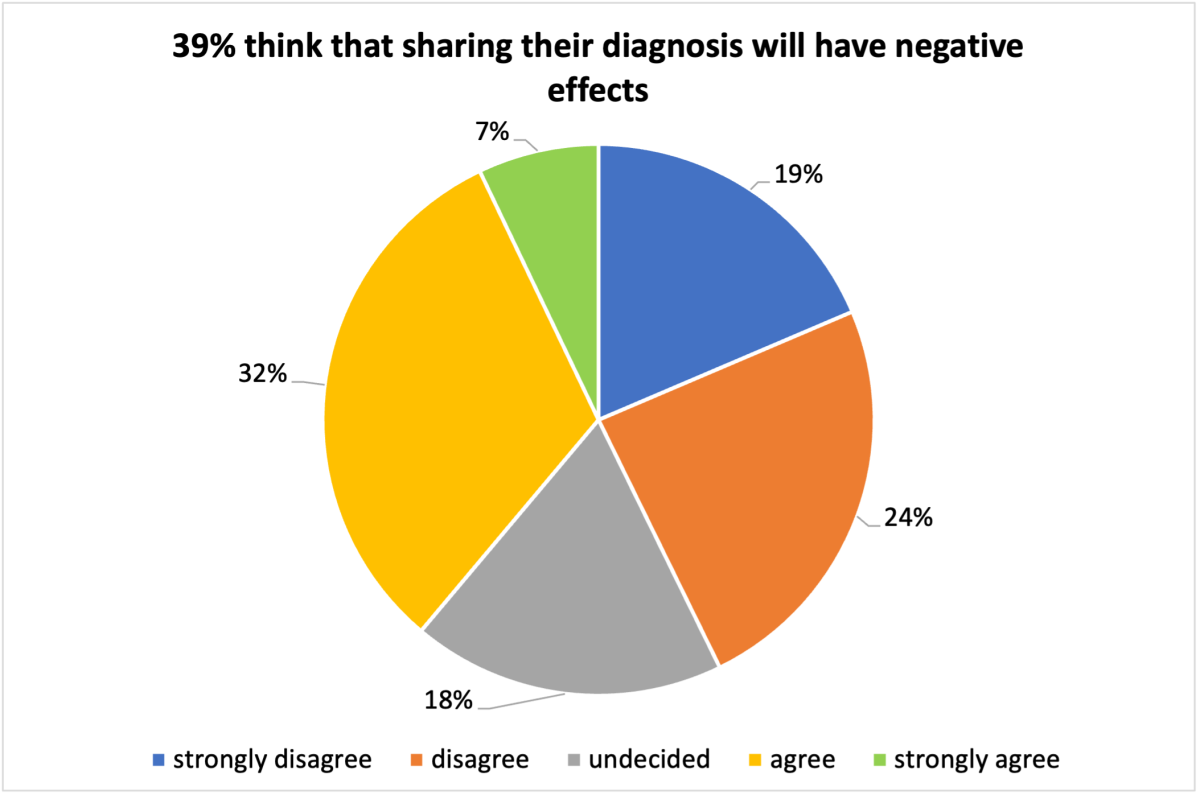What are the goals of the study?
People with MS often struggle with whether and how to tell others that they have MS. There are many factors that could affect how people approach this decision. For example, previous research found that people who are more concerned about telling others about their MS tend to be lonelier and have less social support. It’s possible that the quality of MS healthcare may also affect whether a person with MS reveals their diagnosis to others.
The goals of this study were:
- To find out how many people with MS hide or share their diagnosis.
- To research whether a person's experience when they were first told they had MS has anything to do with how they share or hide their diagnosis later on.
- To check if a person's doctor talking with them about sharing their diagnosis changes how they share or hide it.
Who led the study and what was the funding source?
The study was led by Drs. Victoria Leavitt and Andrew Solomon, and funding was provided by the University of Vermont Multiple Sclerosis Center.
How was the study conducted?
- Researchers invited adults who had been diagnosed with MS who are members of iConquerMS to take a survey.
- The survey asked people about their diagnosis experience, whether they hide or share their diagnosis, and whether their doctor talks to them about sharing their diagnosis.
- A total of 428 adults with MS participated in the study by completing the survey.
- Researchers looked at the answers to the survey questions to see if there were any patterns.
What did we learn from this study?
- Almost half of people with MS who answered the survey said that they sometimes, often, or always hide their diagnosis from others.
- Younger people with MS are more likely to hide their diagnosis, as are people with higher education levels or who were less disabled.
- People with MS who had a negative experience when they were diagnosed are more likely to hide their diagnosis later on.
- Doctors rarely talk to people with MS about sharing their diagnosis. Only 23% of the people surveyed said that a healthcare provider has ever brought this topic up.
- People with MS who have talked to their doctor about sharing their diagnosis are less likely to worry about the negative consequences of sharing their diagnosis.


What do these study findings mean?
- If you are younger and you have recently been diagnosed with MS, you may be more likely to hide your diagnosis. It is important to know that you are not alone, and there are resources available to help you.
- If you had a negative experience when you were diagnosed with MS, you may also be more likely to hide your diagnosis later on.
- Many doctors do not talk to their patients with MS about sharing their diagnosis. However, talking to your doctor about sharing your diagnosis can help you to feel more confident about your decision.
- If you are worried about the negative consequences of sharing your diagnosis, there are things you can do to protect yourself. For example, you can talk to your employer about your rights under the Americans with Disabilities Act (ADA), and you can join a support group for people with MS.
What will we do next with this information?
- These findings suggest that it’s beneficial for people with MS to talk with their doctors about whether or not to share their diagnosis with others.
- One key priority of this research is to make MS healthcare providers aware of the importance of discussing with their patients whether and when to share a diagnosis.
- Another priority is to make people with MS aware that the burden of sharing and hiding is a health issue, not just another problem they need to figure out on their own.
- The research team is continuing to analyze the results of the survey. This includes exploring whether hiding an MS diagnosis might affect the health and well-being of people with MS.
Learn more:
Journal article: Diagnosis concealment is prevalent in MS, and associated with diagnosis experience
Share this project summary with others:
https://www.iconquerms.org/diagnosis-experiences-and-their-impact-health-and-well-being-ms